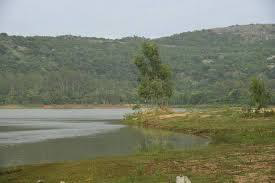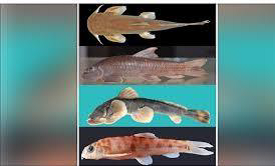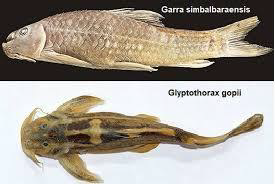
- Appointments
- Awards
- Bills & Acts
- Books & Authors
- Committees
- Deaths
- Defence
- Economic
- Environment
- Banking and Finance
- Important Days
- International
- Miscellaneous
- National
- Persons in News
- Places in News
- Regional
- Reports
- Resignations & Retirements
- Science & Technology
- Sports
- August 2019 - Exams Resources
- Current Affairs - Quiz
- Current Affairs - Test
- Current Affairs - PDF
Current Affairs August 2019 - Environment
1 - Tigers in India face threat from Canine Distemper Virus

According to a study published in Threatened Taxa, tigers and leopards living in the national parks are facing the threat of Canine Distemper Virus (CDV). The CDV virus can be transmitted from CDV-infected dogs living in wildlife sanctuaries to tigers.
86% of the tested dogs around the Ranthambhore National Park in Rajasthan carried CDV antibodies in their bloodstream. Canine distemper is a contagious and serious disease caused by a virus that attacks the respiratory, gastrointestinal and nervous systems of both domesticated and wild animals.
2 - Centre approved final Eco Sensitive Zone notifications

Centre has approved final Eco-Sensitive Zone notifications of the 11 sanctuaries in Tamil Nadu, one in Chhattisgarh and one in Maharashtra to help scientific conservation of ecosystems and to give relief to the people in the area.
The sanctuaries include Vaduvoor Bird Sanctuary, Kanjirankulam Bird Sanctuary, Megamalai Wildlife sanctuary, Vettangudi Birds sanctuary in Tamil Nadu, Achanakmar Tiger Reserve in Chhattisgarh and Tungareshwar Wildlife Sanctuary in Maharashtra.
3 - Government unveiled draft Environmental and Social Management Framework

Union Ministry of Environment, Forests and Climate Change (MoEFCC) has unveiled draft Environmental and Social Management Framework (ESMF) for coastal zone management. The draft ESMF is part of a World Bank-funded project.
The draft plan lays out guidelines out for coastal States to adopt when they approve and regulate projects in coastal zones. Currently, only 3 coastal states - Gujarat, Odisha and West Bengal have prepared Integrated Coastal Zone Management Plans with support from the World Bank.
4 - Five new fish species discovered in Arunachal Pradesh

Researchers of the Rajiv Gandhi University have discovered five new fish species in various districts of Arunachal Pradesh. Professor DN Das headed the research team.
The scientific names of the newly-discovered fish species are
Mystus prabini
Exostoma kottelati
Creteuchiloglanis tawangensis
Garra ranganensis
Physoschistura harkishorei
5 - Iceland commemorates first glacier lost to climate change

Iceland commemorated the loss of the glacier Okjokull, its first glacier lost to climate change. It was officially declared dead by the Icelandic Meteorological Office in 2014 at the age of 700 when it was no longer thick enough to move.
Iceland loses about 11 billion tonnes of ice per year, and scientists fear that all of the island country's 400-plus glaciers will be gone by 2200. The Prime Minister of Iceland is Katrin Jakobsdottir.
6 - Odisha approves conservation plan of lakes "Chilika and Ansupa"

The State Wetlands Authority of Odisha approved Integrated Management Plan of Chilika and Ansupa Lake. The plan aims for conservation of ecology and promotion of sustainable livelihood of fishermen living around the two wetlands. It will be executed for a period of five years from 2019. The cost of the investment is Rs 179.13 crore.
Chilika lake is Indias largest brackish water lagoon spread over 1,100 square km in three districts of Khurda, Puri and Ganjam, and Ansupa is the Odishas largest freshwater lake.
7 - India largest SO2 emitter in world

According to a new analysis by Greenpeace, India is the largest emitter of SO2 in the world with more than 15% of all the anthropogenic sulphur dioxide (SO2) hotspots detected by NASA OMI (Ozone Monitoring Instrument) satellite. Almost all of these emissions in India are because of coal burning.
The NASA data revealed that Norilsk smelter complex in Russia is the largest SO2 emission hotspot in the world, followed by Kriel in Mpumalanga province in South Africa and Zagroz in Iran.
8 - Two new species of Freshwater Fish found

Scientists of the Zoological Survey of India have discovered two new species of freshwater fish - Glyptothorax gopii and Garra simbalbaraensis.
Glyptothorax gopii, a new species of catfish was found in Mizorams Kaladan river. It is dark brown on its dorsal surface, and its ventral surface is of a yellowish-light brown. Garra simbalbaraensis was found in Himachal Pradeshs Simbalbara river. It has a yellowish-grey colour fading ventrally.
9 - WWF and Discovery to preserve Sundarbans

WWF India and Discovery India have partnered with the Forest Directorate, the government of West Bengal and local communities in the Sundarbans.It is done as a move to protect the Sundarbans the mangrove forest, habitat of Bengal tigers, to reduce the tiger-human conflict and also as part of a global movement Project CAT -Conserving Acres for Tigers.
Through this project, two Sundarbans Ecological Observatories will be set up, each featuring data loggers, monitoring buoys and an onsite laboratory. The project will use technology to solve several of the issues faced in the region.
10 - CoP18 of CITES held in Geneva

The 18th Conference of the Parties (CoP18) of Convention on International Trade in Endangered Species of Wild Fauna and Flora (CITES) was recently held in Geneva, Switzerland. CITS is an international agreement aimed at ensuring that international trade in specimens of wild animals and plants does not threaten their survival.
Smooth-coated otter (Lutrogale perspicillata) was moved from CITES Appendix II to CITES Appendix I, giving it highest level of international protection. Indian star tortoise was also moved to CITES Appendix I. Tokay gecko (Gekko gecko) will be included in CITES Appendix II.